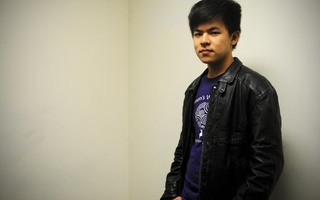Someone’s gender identity may be different from the gender assigned at birth—the biological sex of a newborn as perceived by physicians, and, therefore, the gender that child is raised as—or from sex, which is a combination of hormonal, genital, and secondary-sex characteristics.
Furthermore, someone’s gender identity may or may not coincide with expression of gender, which can be anywhere on the spectrum of masculine and feminine. It is also separate from sexuality or sexual orientation, which signifies the gender to which a person is attracted.
In addition to the pronoun sets of “he/him/his” and “she/her/hers,” individuals may also prefer to be referred to with the gender-neutral pronouns “they/them/theirs” or “ze/hir/hirs,” or simply by name.
Individuals who identify outside the binary of man and woman may identify as any number of terms under the transgender umbrella, including genderqueer or gender-fluid. The trans rights movement has coined the term “cisgender” for people whose gender identities and expressions match the gender they were assigned at birth. The word comes from the Latin prefix “cis”—the antonym of “trans”—which means “on the same side as.”
For Jamie, this language was crucial in articulating their identity.
“I don’t want surgery. It’s not a body dysmorphic thing; it’s a gender presentation thing,” Jamie said. “I knew my gender presentation was atypicaI, but I didn’t have the language to express that when I was 10.... It’s only recently that I realized that I’d rather have a positive identity as something in-between than always react against traditional male or female identity.”
For some students, regardless of the pronouns they prefer, fluidity in gender expression is key to their identity.
“There are some days when I really want to pass as male, but there are some days when I really want to pass as female,” said Madeline O. Studt ’16, who is open to all pronouns. “Then, there are certain days when I really don’t care.”
Studt, for instance, chooses to wear a tuxedo when performing with Harvard-Radcliffe Collegium Musicum, a musical group in which men traditionally wear tuxedos and women wear black dresses.
Students said it can be difficult to share their PGP, particularly in a room full of people who are cisgender.
“Changing your pronouns is a brave thing to do,” said Linda M. Buehler ’14, a lesbian student. “It’s a way of outing yourself to people you don’t even know.”
ASKING THE RIGHT QUESTION
“Pronouns are something that we use just as often as names,” said Alex, a trans-identified junior who prefers the pronoun “they.”
Alex, whose name was changed by The Crimson because their parents do not know that they are trans, said that learning people’s preferred pronouns “should be just as important as learning [what name] somebody would want to be called.”
For students who do not adhere to the male/female gender binary, acknowledging their PGP is a sign of respect.
Read more in News
Student Dissertation Sticks to Schedule Despite Hurricane SandyRecommended Articles
-
 Tolerance at Harvard: Students Lag Behind Administration
Tolerance at Harvard: Students Lag Behind Administration -
Name, Year, House, PGP?Despite generally best intentions, Harvard is still not as trans-friendly a school as we could be.
-
The Harvard Crimson Style Guide: 2015 SupplementWe at The Harvard Crimson acknowledge the evolving nature of language, and as such we recognise the necessity of updating our comprehensive Style Guide to accommodate questions that have arisen over the past few years.
-
 UC Launches 'Side by Side' Gender Equality Campaign
UC Launches 'Side by Side' Gender Equality Campaign -
Students Indicate Preferred Gender Pronouns at RegistrationThe Faculty of Arts and Sciences’ registration tool now gives students the option to choose preferred gender pronouns.













